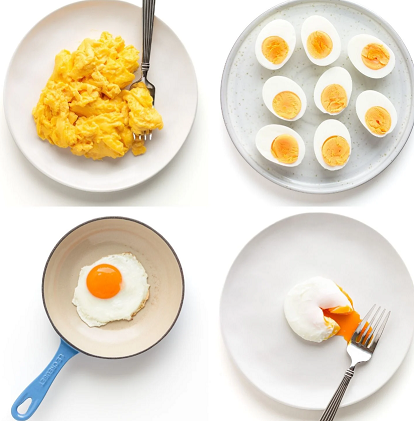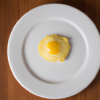In this article, we’ll discuss some common mistakes when cooking eggs.

Before cooking eggs, you should ensure they are safe to eat. Determining if eggs are still good to eat can be done through a few simple methods. The biggest mistake would being using eggs that can get you sick.
How to determine if eggs are still fresh and safe?
Here are some ways to tell if eggs are still fresh and safe to consume:
- Check the expiration or “best by” date: Eggs typically have a date printed on the carton indicating the expiration or “best by” date. Always check this date before using eggs, and avoid using eggs that have expired.
- Conduct a visual inspection: Examine the eggs for any visible cracks, leaks, or other physical damage. If an egg has cracks or leaks, it may be a sign of spoilage and should not be used.
- Perform the water test: Fill a bowl or a glass with water and gently place an egg in it. Fresh eggs will sink and lay flat at the bottom of the container, while older eggs will start to rise and tilt or float. If an egg floats to the top, it may be an indication that it has gone bad and should not be consumed.
- Sniff for any off odors: Fresh eggs should not have a strong or foul smell. If you detect an unpleasant odor coming from an egg, it may be spoiled and should be discarded.
- Check the yolk and egg white: Crack the egg open into a clean bowl or plate and check the appearance of the yolk and egg white. Fresh eggs will have a firm yolk and a thick, clear egg white. If the yolk is runny, the egg white is watery, or if there are any unusual colors or odors, it may be a sign of spoilage.
It’s important to note that consuming spoiled or rotten eggs can pose health risks, including the risk of foodborne illness. When in doubt, it’s best to err on the side of caution and discard any eggs that you suspect may be spoiled or past their expiration date. Always practice proper food safety measures and store eggs in the refrigerator to help extend their shelf life and maintain freshness.
Here are the 5 most common mistakes when cooking eggs, along with their solutions and tips to avoid them:
Mistake #1: Overcooking
Overcooking eggs can result in dry and rubbery textures. To avoid this mistake, you can pay attention to cooking time and use a timer. For soft-boiled eggs, cook for 4-5 minutes; for medium-boiled eggs, cook for 6-7 minutes; for hard-boiled eggs, cook for 9-12 minutes, depending on desired yolk consistency.
Mistake #2: Not seasoning properly
Eggs need adequate seasoning to bring out their flavors. Under-seasoning can result in bland-tasting eggs. To avoid this mistake, you can season eggs with a pinch of salt and a dash of pepper or other desired herbs and spices during cooking. Remember that a little goes a long way, so start with a small amount and adjust to taste.
Mistake #3: Using high heat
Cooking eggs over high heat can cause them to become tough and develop a brown crust. To avoid this mistake, you can cook eggs over medium to low heat to ensure even cooking and prevent overcooking. Use non-stick pans or add a small amount of butter or oil to prevent sticking.
Mistake #4: Using cold eggs
Adding cold eggs to a hot pan can cause them to cook unevenly and result in overcooked whites and undercooked yolks. To avoid this mistake, you can allow eggs to come to room temperature before cooking by placing them in a bowl of warm water for a few minutes. This will help them cook more evenly.
Mistake #5: Not stirring scrambled eggs properly
Scrambled eggs can easily become dry and unevenly cooked if not stirred properly. To avoid this mistake, you can use a low heat and stir constantly with a spatula to create small curds. Avoid over-stirring, as it can result in dry eggs. Remove from heat while they are still slightly creamy as they will continue to cook from residual heat.
Remember to experiment and adjust cooking times and methods to your preference. With practice and attention to detail, you can avoid these common mistakes when cooking eggs and enjoy perfectly cooked eggs every time! If your cooking eggs, be sure to check out our egg tips.








